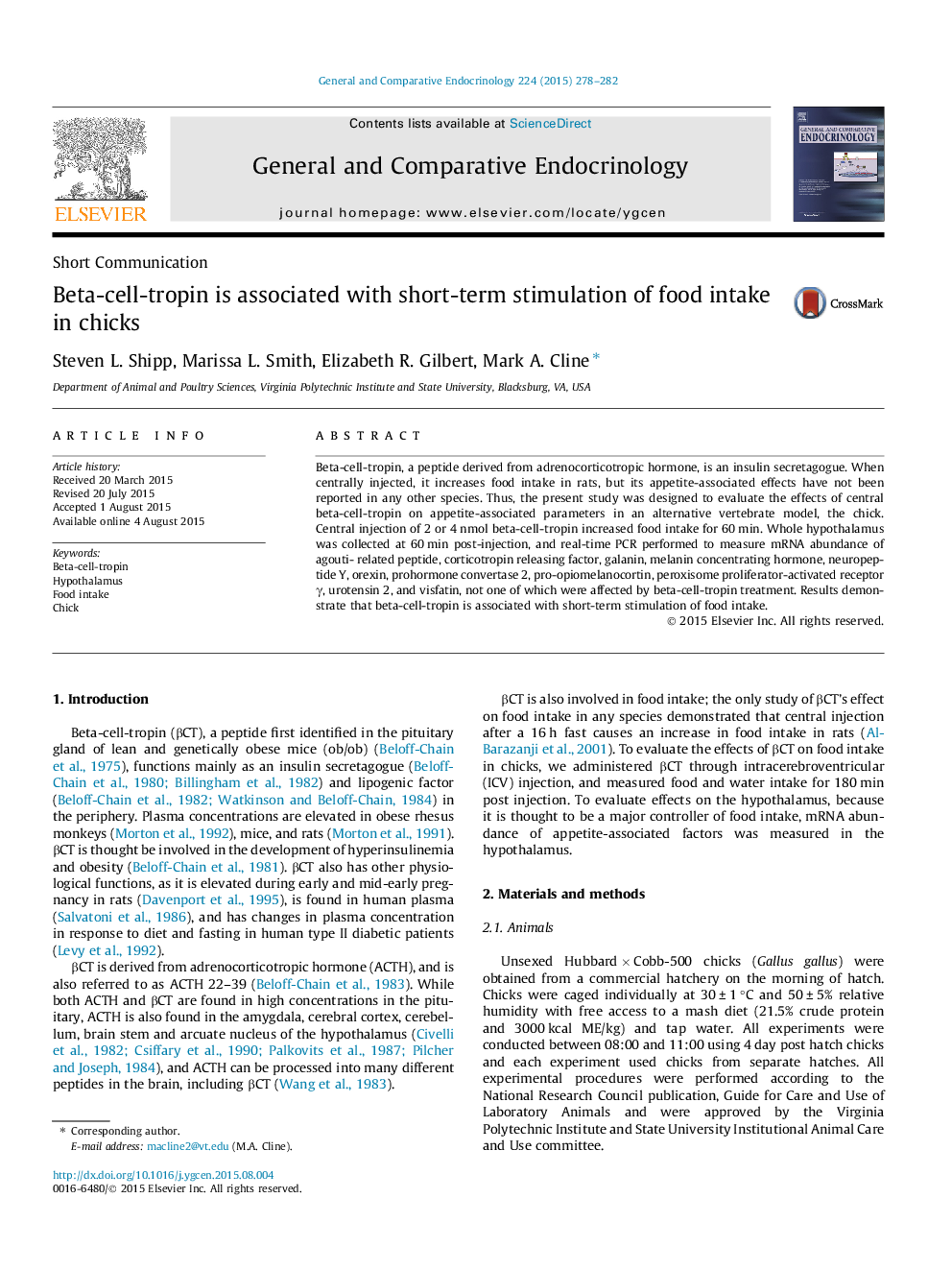| Article ID | Journal | Published Year | Pages | File Type |
|---|---|---|---|---|
| 5900894 | General and Comparative Endocrinology | 2015 | 5 Pages |
â¢Central injection of beta-cell-tropin cause increased food intake of chicks.â¢Central injection of beta-cell-tropin did not affect water intake.â¢Real-time PCR of hypothalamic appetite-associated factors did not reveal changes after central beta-cell-tropin injection.
Beta-cell-tropin, a peptide derived from adrenocorticotropic hormone, is an insulin secretagogue. When centrally injected, it increases food intake in rats, but its appetite-associated effects have not been reported in any other species. Thus, the present study was designed to evaluate the effects of central beta-cell-tropin on appetite-associated parameters in an alternative vertebrate model, the chick. Central injection of 2 or 4 nmol beta-cell-tropin increased food intake for 60 min. Whole hypothalamus was collected at 60 min post-injection, and real-time PCR performed to measure mRNA abundance of agouti-related peptide, corticotropin releasing factor, galanin, melanin concentrating hormone, neuropeptide Y, orexin, prohormone convertase 2, pro-opiomelanocortin, peroxisome proliferator-activated receptor γ, urotensin 2, and visfatin, not one of which were affected by beta-cell-tropin treatment. Results demonstrate that beta-cell-tropin is associated with short-term stimulation of food intake.
